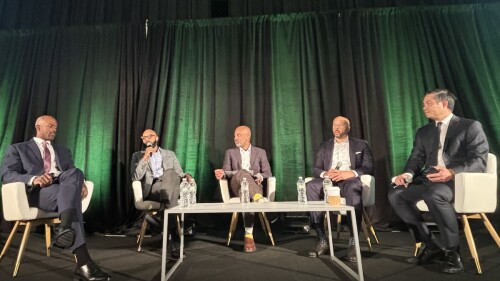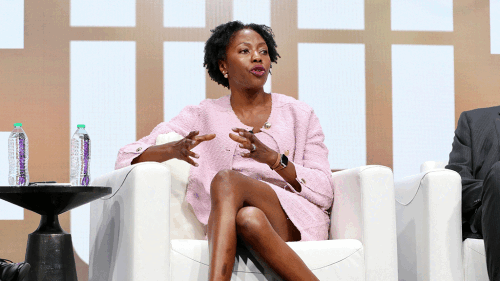Editor’s Note: On May 7, 2020, Sidewalk Labs announced it would no longer pursue the Quayside project in Toronto.
“Cities need to grow to thrive,” Dan Doctoroff said. “But we can’t take growth for granted.”
Doctoroff is the chairman and CEO of Sidewalk Labs, a subsidiary of Google parent Alphabet, which is developing a new district in Toronto meant to serve as a model for the 21st-century global city. Before he founded Sidewalk Labs in 2015, he was the deputy mayor of New York City from 2001 to 2008 and president and CEO of Bloomberg LP from 2008 to 2014.
Afteryears of population growth, New York City has actually slightly shrunk in the past two years. “Declinebegets decline,” he said, remembering the major population losses that citysuffered during the 1980s. But Sidewalk Labs aims to prop up what Doctoroffcalls the virtuous cycle: To be progressive, a city must beprosperous. In order to be prosperous, a city must grow.
Doctoroff kicked off ULI Europe’s 2020 Conference in Amsterdam as the dinner keynote speaker at the historic Beurs van Berlage, a former commodities exchange built at the turn of the last century. Sharing new images of the development in Quayside, Doctoroff is optimistic about his organization’s potential effects on the future of Toronto.
The virtuous cycle of cities in action needs a mindshift of the functions and connotations of the term #developer - but when do we reach #peakcity? Will we end up at the vicious cycle? @DanDoctoroff @sidewalklabs @ULIEurope #ULIEurope2020 pic.twitter.com/O1GG9Rris8— Michael Müller (@MMueller_FFM) February 4, 2020
Currentlythe smart city movement is very fragmented, he said, and a huge divide exists betweenurbanists and technologists. “The two sides have different time horizons,” hesaid. Anyone who is interested in the details of Sidewalk Labs’ plans can diveinto the 1,524 pages of “TorontoTomorrow,” which Doctoroffdescribed as “a handbook for the future of urbanization, driven by innovation.”
Themass timber high-rise, dubbed the PMX Project, would be the tallest wooden structure inthe world, reaching 35 stories. Designed by Michael Green Architecture, the building is optimized for factoryproduction and easy assembly. Doctoroff said that Sidewalk Labs spent a yearoptimizing the supply chain in Canada. At present, the tallest wooden buildingsin the world reach 18 stories, in Oslo and Vancouver.
However,a lawsuit filed by a Canadian civil rights organization aims to scrap partsof the project altogether on privacy grounds. The deadline to decide whether tomove ahead with the partnership between Sidewalk Labs and Waterfront Toronto, the government agency that controls thearea, has been extended from March 31 to May 20.
In Amsterdam, Doctoroff acknowledged the concerns about data privacy, saying, “We know a lot of these concerns aren’t wrong.” He believes Sidewalk Labs has cracked the code for managing data gathered in public spaces, but “it has to be managed by government, and we submit willingly,” he said. “We think it’s a model for the entire world.”




